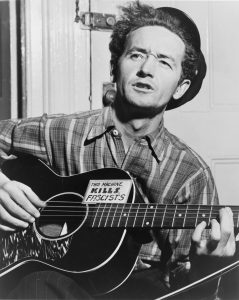Today’s Dr. Bob Prescribes post is different from previous posts in two ways.

First, only once before has this post prescribed more than one recording; today’s post prescribes four. My thinking is as follows: as Amazon is still delivering, and as so very many of us are housebound (or nearly so) for the foreseeable future, we have the time and wherewithal to consume rather more music than usual. And that we should do, because it will help to keep us sane.
Second, this post recommends three “greatest hits” albums, which is something I am ordinarily loath to do. What constitutes a “greatest hit”, anyway? Record sales? Frequency of radio play? Sheet music sales”? Excuse me, but generally speaking, I’d rather decide what constitutes a “greatest hit” based on perceived artistic merit than statistical accomplishment. Further, a “greatest hits” album tells no larger musical story: we as listeners get no sense of a group’s artistic trajectory over time. Rather, such an album is a hodge-podge of songs recorded whenever, without any chronological reference. Finally, for those of you who are already fans, the greatest hits albums serve no purpose whatsoever, as you likely already have a comprehensive sampling of these artists’ work.
So why am I recommending “greatest hits” albums in the first place? Because: for those of us unfamiliar with the American folk revival of the 1950s and 1960s, these recordings feature the relatively early work of four of the major players in that folk revival, and as such, each album stands as one-volume compendium/illustration of that work. My hope is that once you hear something you really like in one of these “greatest hits” albums you’ll rush out and purchase a larger sampling of work.
A new sort of populist folk music emerged in the United States during the second quarter of the twentieth century. As epitomized by the Oklahoma-born singer-songwriter Woodrow Wilson “Woody” Guthrie (1912-1967), it was a music born from the Great Depression (1929-circa 1938) and the Dust Bowl (circa 1930-1936), the words of which focused on social justice, workers’ rights, poverty, and the environment. This politically left-leaning music went deep underground during the hysterically anti-communist, Red Scare years between roughly 1947 and 1957, during which Senator Joseph McCarthy (R-Wisconsin) – among many others – accused the left of subversion and even treason by pandering to communism.
When McCarthy died in 1957 and the worst of this tawdry episode in American history drew to a close, American folk music as a vehicle for social statement and protest re-emerged with a vengeance, driven now by such new media technologies as 45 and 33 ½ rpm records, the transistor radio, and television. …
Continue reading and see the FOUR recommended recordings, only on Patreon!
